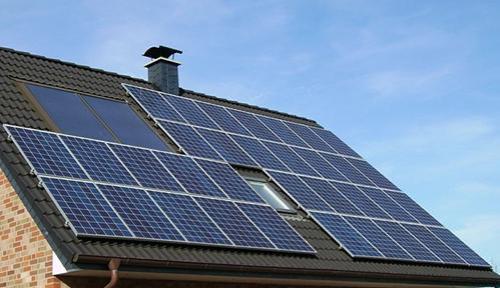On June 3, Beijing time, the U.S. Department of Commerce made a preliminary anti-dumping investigation against China's anti-dumping and anti-subsidy investigations on photovoltaic products imported into the United States. This is when the United States imposed high anti-dumping and countervailing duties on Chinese PV products to the United States in November 2012. It again launched a "double counter" investigation on Chinese PV products and tried to impose high taxes. For Jiangsu's photovoltaic industry, which is still warm and cold, the U.S. move is tantamount to adding new pressure.
Thermal Relay is used to protect AC three-phase asynchronous motor/electric motor against overload and open phase. Korlen electrical appliances produce thermal relay switch in wholesale,being a good thermal overload relay suppliers from china. We also offers Manual Motor Startor , AC Contactor, LED Light, Circuit Breaker etc.
Thermal Relay Thermal Relay,Latching Relay,Reed Relay,Polarized Relay Wenzhou Korlen Electric Appliances Co., Ltd. , https://www.korlenelectric.com
On January 23 this year, the U.S. Department of Commerce issued an announcement to launch anti-dumping and anti-subsidy merger investigations on PV products imported from China, and launched anti-dumping investigations on photovoltaic products originating in China's Taiwan region.
"The United States launched the second round of double-counter investigations and it can be said that it is fully controlling China's export of photovoltaics." Professionals of the Provincial Department of Commerce said that two years ago, the first "double reverse" investigation in the United States focused on the use of domestic photovoltaic cells. Components. Some companies have made silicon wafers exported to Taiwan from our country, or purchased photovoltaic cell exports from Taiwan and other places in China in order to avoid taxation. A new round of investigations has included China’s Taiwan in the “double opposition†scope, with the goal of fully restricting China’s exports of photovoltaic products to the United States.
In recent years, the global PV market has shifted from Europe and the United States to emerging markets, but the United States is still one of the major exporters. Of the total exports of photovoltaic products in China, exports to the United States accounted for 13.64% last year. According to U.S. estimates, this year's PV installations will be in the range of 5GW to 6GW, of which more than half will be Chinese component products. The new round of "double reverse" in the United States will affect China's exports of photovoltaic products by 2 billion to 3 billion U.S. dollars. For Jiangsu, the previous "double reverse" has caused 1.3 billion U.S. dollars of photovoltaic products to be exported, accounting for more than 40% of the country's total. Faced with anti-dumping rates ranging from 18.32% to 249.96%, ranging from 14.78% to 15.97% of the countervailing duty rate, many companies have to abandon the US market.
For the new round of trade friction initiated by the United States, Jiangsu photovoltaic companies have condemned it. On May 21, in the Chinese PV industry’s opposition to the second “double reverse†press conference in the United States, photovoltaic companies in our province, such as Tianhe and Artes, made it clear that China’s PV industry has no dumping at all, and there is no illegal subsidies. The photovoltaic industry is a world industry. Setting up any obstacles artificially will cause great losses to China and the United States. They called for the negotiation of negotiations to resolve trade disputes.
Mr. Ruan Xiaoyu, chairman of Artus, pointed out that China's PV companies have just come out of the trough and they are still in a state of warmth. Once the United States imposes high tariffs, a large number of companies will fall.
This worry is not groundless. In fact, it is not easy for the Chinese PV industry to open up the international market. Provincial Department of Commerce sources said that the province's photovoltaic exports are experiencing interference from "double reverse" investigations in countries such as Australia and India.
On May 14th, the Australian Anti-Dumping Committee issued an announcement deciding to initiate anti-dumping investigations on PV modules and panels imported from China. On May 13, the anti-dumping bureau of the Ministry of Commerce and Industry of India issued an anti-dumping investigation on the solar panels of China. The dumping margins in China's Taiwan were 100% to 110% and 70% to 80%, respectively, and the damages were 90% to 100% and 65% to 75% respectively. On November 23, 2012, the Anti-Dumping Agency of India announced that it had initiated anti-dumping investigations on solar cells from mainland China, Taiwan and other places.
Xie Xiangyang, a senior partner of the Shanghai branch of Gaopeng Law Firm, stated that under the backdrop of unstable global economic situation and lack of optimism, countries in order to maintain their own markets and industries to promote employment, high trade frictions are difficult to avoid, and This dispute will exist for a long time. Chinese companies that are in a relatively weak position in international trade, including relevant government agencies, should be better acquainted with and adapted to international trade rules of the game to minimize losses. At the same time, as an open country, China should be more active in joining international rules in order to gain more say.
Provincial Department of Commerce officials reminded relevant companies to actively respond to trade friction, but also to take precautions from the industrial point of view, to avoid rushing into the masses and crowded out of a single wooden bridge. In the market layout, we should develop a win-win or even win-win thinking, and differentiate the foreign and domestic markets. This may give rise to high trade frictions and cool down.